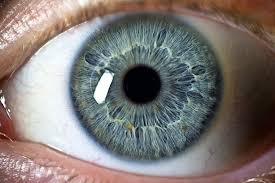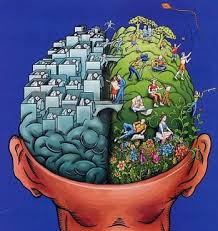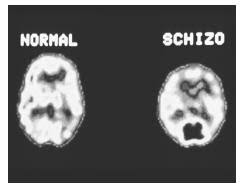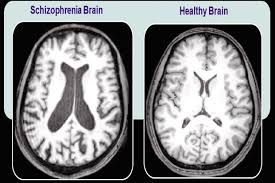Rehab Articles

Schizophrenia has been associated with eye movement impairment, and this fact has been known for decades. A new eye test may be able to identify those who are suffering from schizophrenia based on this impairment according to researchers who performed the study. In the study the researchers determines that the eye test accurately identified people who had schizophrenia more than 98% of the time. Lead paper authors for the study, Dr. Philip Benson and Dr. David St. Clair, reported that “It has been known for over a hundred years that individuals with psychotic illnesses have a variety of eye movement abnormalities, but until our study, using a novel battery of tests, no one thought the abnormalities were sensitive enough to be used as potential clinical diagnostic biomarkers.”
The eye test used in the schizophrenia study involved a series of tasks. These tasks included gaze fixation, smooth pursuit, and free viewing. People who have schizophrenia had difficult with the smooth pursuit task, and their eyes had trouble following moving objects. The eye tended to fall behind the object and then to use saccade, a form of REM, to catch back up with the object. The eyes of people with schizophrenia who were shown a picture in the free viewing test differed from the general population because their eyes tracked and followed an abnormal pattern compared with the those who do not have schizophrenia. The fixation tasks of the eye test were also revealing because individuals who have schizophrenia have difficulty holding their gaze steady on a fixed object that does not move.
Rehab Articles

Schizophrenia, bipolar disorder, and creativity often go hand in hand, and a new study has found that there is a genetic link between all of these elements. Some of the most famous artists through history have struggled with mental illness in some form. It is believed that Vincent Van Gogh was schizophrenic, and the voices are the reason that he cut off his own ear. Famed musician Kurt Cobain, who committed suicide, was diagnosed as having bipolar disorder. Robert Power, the first author of the study who is associated with the Psychiatry, Psychology and Neuroscience at King’s College, London in the UK, explained “For most psychiatric disorders little is known about the underlying biological pathways that lead to illness. An idea that has gained credibility is that these disorders reflect extremes of the normal spectrum of human behavior, rather than a distinct psychiatric illness. By knowing which healthy behaviors, such as creativity, share their biology with psychiatric illnesses we gain a better understanding of the thought processes that lead a person to become ill and how the brain might be going wrong.”
According to the latest study on schizophrenia, bipolar disorder, and creativity those people who are creative are 25% more likely to have a gene variant for bipolar disorder or schizophrenia. Professional writers, dancers, singers, painters, and others whose job requires creativity were more likely to contain one of the gene variants for these mental disorders than people who engaged in manual labor or other professions that did not involve creativity. The study was published in the Nature Neuroscience journal.
Rehab Articles

Crisis management can be crucial if you or someone you care about suffers from schizophrenia. This form of mental illness can involve psychotic episodes and psychosis, and there have been cases where someone with this mental disorder has become aggressive and violent due to the voices and other symptoms that can occur. When someone with schizophrenia starts to slide downwards there is no immediate change that is drastic. It may be possible to deescalate things early in the episode so that a full blown crisis does not develop. One important tip is to speak softly and use simple sentences that are easy to understand. Yelling or being loud and aggressive will not help. In fact this will just make things worse by escalating the crisis and making the symptoms more severe.
Crisis management for a loved one with schizophrenia includes understanding what the early warning signs are. When these signs are recognized as soon as they occur it can be easier to prevent a full blown crisis with early intervention and treatment regimen adjustments. Signs of an impending crisis can include sleeplessness, suspicion that may be severe enough to be classified as paranoia, unpredictable behavior, sudden outbursts, and an increase in delusions or in auditory hallucinations such as voices to name a few. The goal of crisis management with schizophrenia is to help the individual regain control. This means not doing anything that agitates the individual or escalates the situation. Usually the individual is already fearful about the loss of control so it is very important to stay calm and to be as soothing as possible when a crisis is impending.
Rehab Articles

A new scientific study on rats, specifically on the brains of rats, suggest that being exposed to lead may be a contributing factor to schizophrenia onset. The study was performed at the Mailman School of Public Health at Columbia University, and a study description was published in the Translational Psychiatry journal. There were many similarities between the brains of rats and the brains of humans with schizophrenia when rats were exposed to lead before birth an during the early postnatal period. Lead, a heavy metal which can cause damage in small amounts or even be toxic in larger amounts, has a detrimental effect on the brain in three specific areas which are implicated in schizophrenia. These brain areas were the striatum, the medial prefrontal cortex, and the hippocampus.
The scientific study on rat brains exposed to lead also showed that lead can mimic other brain changes in schizophrenia. According to senior study author Tomás Guilarte, Ph.D. “The similarities in the brain structure and neuronal systems between what we see in lead-exposed rats and human schizophrenia patients are striking, and adds to a growing body of literature suggesting that early lead exposure primes the brain for schizophrenia later in life.” First study author Kirstie Stansfield, Ph.D, explained
“We are currently assessing the impact of lead exposure on both the rewarding and reinforcing properties of addictive drugs like cocaine while exploring the biological underpinnings of how lead exposure plays a role in addiction.” The study results could lead to additional studies to determine just how much lead is necessary before the onset of schizophrenia is triggered in a person.
Rehab Articles

Schizophrenia, a serious and sometimes extremely devastating mental disorder, is a condition that has no cure right now. Thanks to advances in modern medicine and imaging technology scientists today know that people who suffer from schizophrenia tend to have brain function that is abnormal in certain respects. Imaging scans of those with the mental disorder and with control scans from patents who have no mental illness show that different areas of the brain are active in those who have schizophrenia. People who have this condition may suffer from chemical imbalances with neurotransmitters, complex chemicals that allow communication between brain cells and chemical systems in the brain and body. Some scientists believe that the neurotransmitters glutamate and dopamine may be involved in schizophrenia but this is still being tested and is not proven yet.
In addition to differences in brain function many people with schizophrenia also have abnormalities in the structure of the brain. When images of normal and schizophrenic brains are compared there are small but very discernible differences in the structure of the brain. It is important to note that some with schizophrenia may not have these physical abnormalities in the brain structure, and some without this condition may also have the same structural abnormalities though. This means that simply looking at brain scans can not predict who will develop the condition. Some neurobiologists theorize that schizophrenia may result from inappropriate connections which are formed by neurons in the fetal brain, and these are activated during puberty when the drastic brain changes that occur during this growth phase affect the faulty connections.



